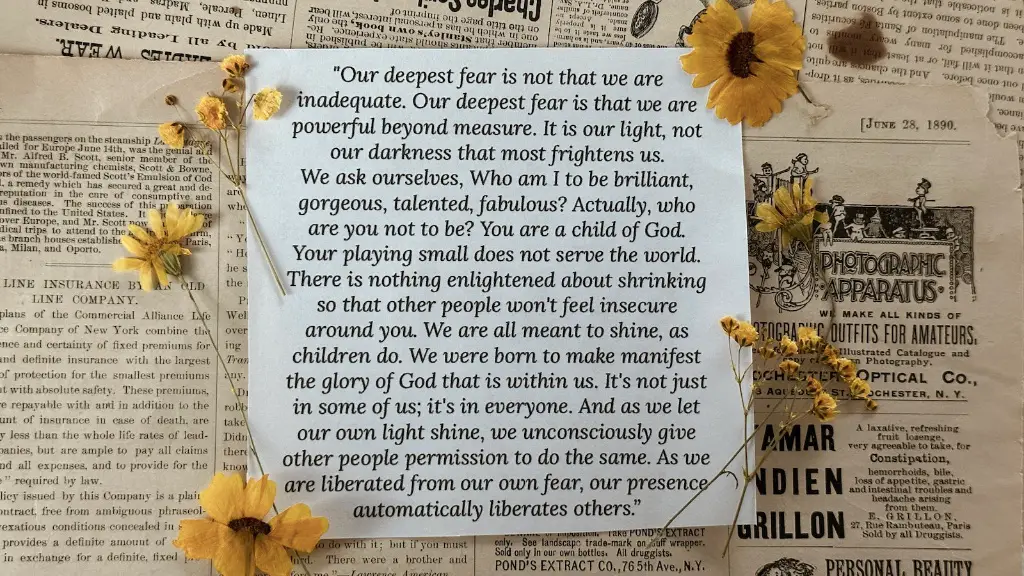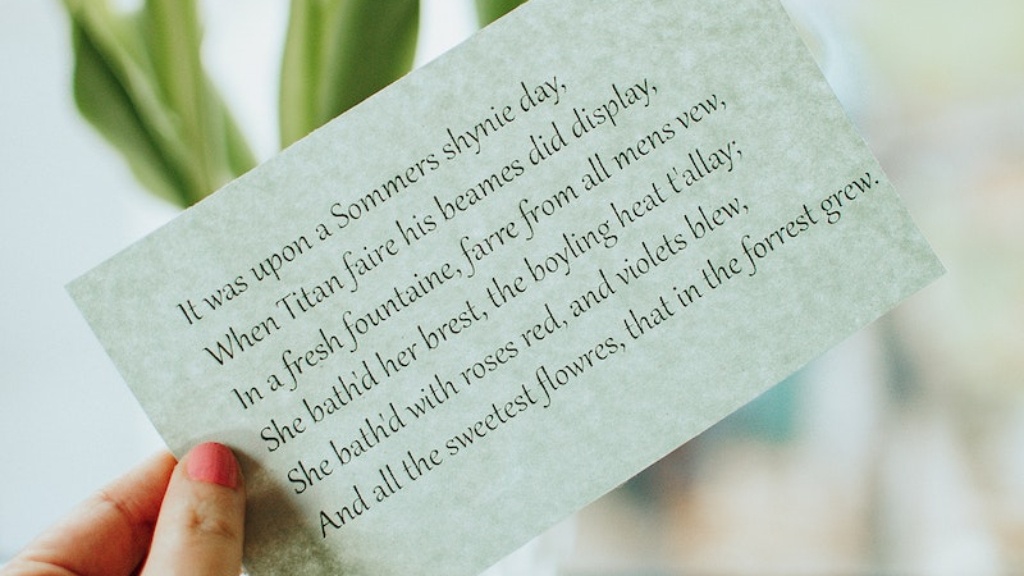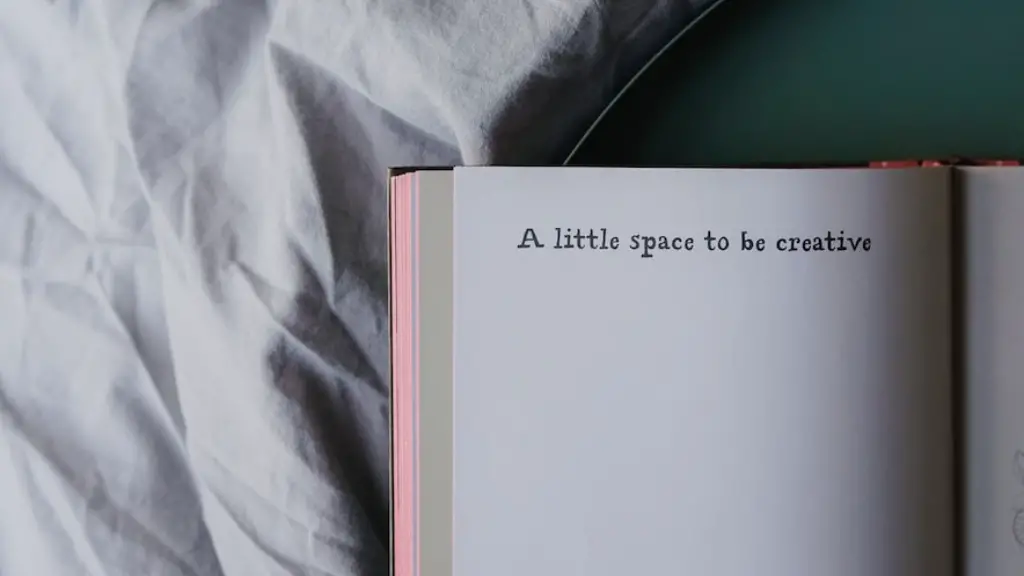In an era of ever-increasing injustice, protest poetry has become an essential form of self-expression, catharsis and resistance. At its core, protest poetry is a form of expression used to emphasise and focus attention on the injustices that exist within a particular area of life, be it social, economic, racial, religious or political. This type of poetry tends to be angry, impassioned and has an intent to provoke and influence change. It is often direct and uncompromising, favouring vivid imagery and satire in order to achieve its purpose.
The origins of protest poetry can be traced all the way back to pre-historic societies, when poetry was used to criticise and highlight injustices experienced by individuals or a broader community. One of the earliest examples of this is found in the ancient texts of the Hebrew prophets, such as Isaiah, who used poetry to speak out against the ruling classes and call for the end of Israel’s slavery to the oppressive Babylonian Empire.
In more modern times, protest poetry had its inception during the 18th century when the slave trade began to be exposed for the cruel and immoral enterprise that it was. In the 19th century, poets such as Walt Whitman and William Wordsworth used their work to protest against war, poverty and injustice. In the 20th century, African-American protest poets such as Langston Hughes and Maya Angelou further pushed boundaries and created a platform to speak out against racism, oppression and social inequality.
The use of protest poetry has increased in recent years with the emergence of the art of spoken word performance, where authors are able to address the audience directly and emphasise certain words or phrases in order to create an impact. This style of written expression is often used to create an argument and to deliver an emotional message. The use of free-verse and poetic devices such as simile and metaphor allow the author to reflect and develop their own personal insights and understanding of an issue.
In order to be effective, protest poetry must strike a fine balance between being engaging and confrontational, resonating with the audience’s emotions whilst maintaining a strong narrative structure. It needs to be truthful, honest and thought-provoking in order to create an emotional connection and capture the reader’s attention.
Protest poetry has long been an effective tool to convey ideas and raise awareness of issues, inspiring individuals to rise up and fight for what is right. Its power lies in its ability to evoke emotions, provoke thought and inspire change. Its resurgence today indicates a renewed desire for personal liberty and justice for those who have suffered under oppressive regimes.
How does protest poetry work?
Protest poetry works by allowing people to express their frustrations and speak out against injustice. It provides a platform for authors to articulate their experiences and perspectives, touching on topics that are often neglected or overlooked in mainstream media and discourse. The use of poetic techniques allows authors to draw attention to injustices in a creative, engaging and emotionally powerful way.
The power of protest poetry lies in its ability to move beyond facts and figures to communicate real-life experiences, provoke thought and emotion, and inspire change. It is a tool for authors to express their frustrations and challenge accepted interpretations of topical events. By using vivid imagery, irony and metaphor, poets are able to capture the attention of their audience and provide a powerful platform to promote discussion and encourage action.
The use of protest poetry can also bring people together who may not otherwise interact. It can provide a platform for marginalised voices to be heard and give individuals a sense of agency and power. Used correctly, it can be a powerful force for social and political change, helping to highlight injustices and mobilize people to stand up for what they believe in.
Protest poetry can advocate for social change by bringing attention to injustices and providing a platform to express frustration and speak out against oppressive regimes. It allows writers to capture the attention of their audience and make a powerful statement about the reality of injustice and its effect on individuals and wider society.
By utilising vivid imagery, irony and satire, authors are able to tell a story and convey emotions in a way that facts and figures cannot. This can provide an insight into the experiences of those who suffer from oppressive regimes and draw attention to the issues. It can help to educate and engage the reader, prompting them to consider the root causes of injustice and consider possible solutions.
In addition, the use of protest poetry can also bring people together who may not otherwise interact. Through creative expression and shared experiences, authors can create a sense of solidarity and community. The collective energy can be used to drive action and create positive change. This can be seen in the #MeToo Movement, which started as a protest poem and has since become a global phenomenon.
Measuring the impact of protest poetry
Assessing the impact of protest poetry is challenging as there is no concrete data which measures its success. It is an art that resonates deeply with individuals, providing a connection and outlet for those who have experienced injustice. It can inspire, entertain and invoke emotion, but it is often difficult to quantify its tangible effects on society.
Extensive research is needed to determine the long-term social impacts of protest poetry. However, the availability of protest literature and the fact that it often features in mainstream discourse suggest its importance and relevance in contemporary society. Its continued importance and presence indicate that it is an important tool for raising awareness and advocating for change.
In addition to research, it is important to measure the impact that protest poetry has on individuals. Stories of people who have been moved and inspired by protest poetry can illustrate the effect that it has on people’s lives. This can be seen in the rise of art activism, which uses creative forms such as spoken word and street art to raise awareness and demand change.
Conclusion
Protest poetry is an essential form of expression that allows people to articulate their frustrations and speak out against injustice. It has a long history of challenging oppressive regimes and encouraging positive change in society. Through vivid imagery and poetic devices, authors are able to capture the attention of their audience and make a powerful statement about the reality of injustice and its effect on individuals and wider society.
The power of protest poetry
The power of protest poetry lies in its ability to move beyond facts and figures to articulate real-life experiences and evoke emotions. It gives people a platform to raise awareness and demand change without relying on traditional forms of activism and protest. By creating an emotional connection with the reader and using vivid imagery, protest poetry can be a powerful tool for mobilising people and inspiring action.
Protest poetry today
The use of protest poetry has increased in recent years with the emergence of art activism and the rise of spoken word performance. This has enabled authors to reach a wider audience and create an impact. This type of written expression is often used to create an argument and to deliver an emotional message, illustrating the continued importance of protest poetry in contemporary society.
The future of protest poetry
Protest poetry has long been an effective tool to convey ideas and raise awareness of issues, inspiring individuals to rise up and fight for what is right. Its future is uncertain, however, due to the limited research on its long-term social impacts and the difficulties in measuring its impact on individuals. Despite this, its importance and relevance in today’s society suggest that protest poetry will remain an essential form of expression for years to come.




